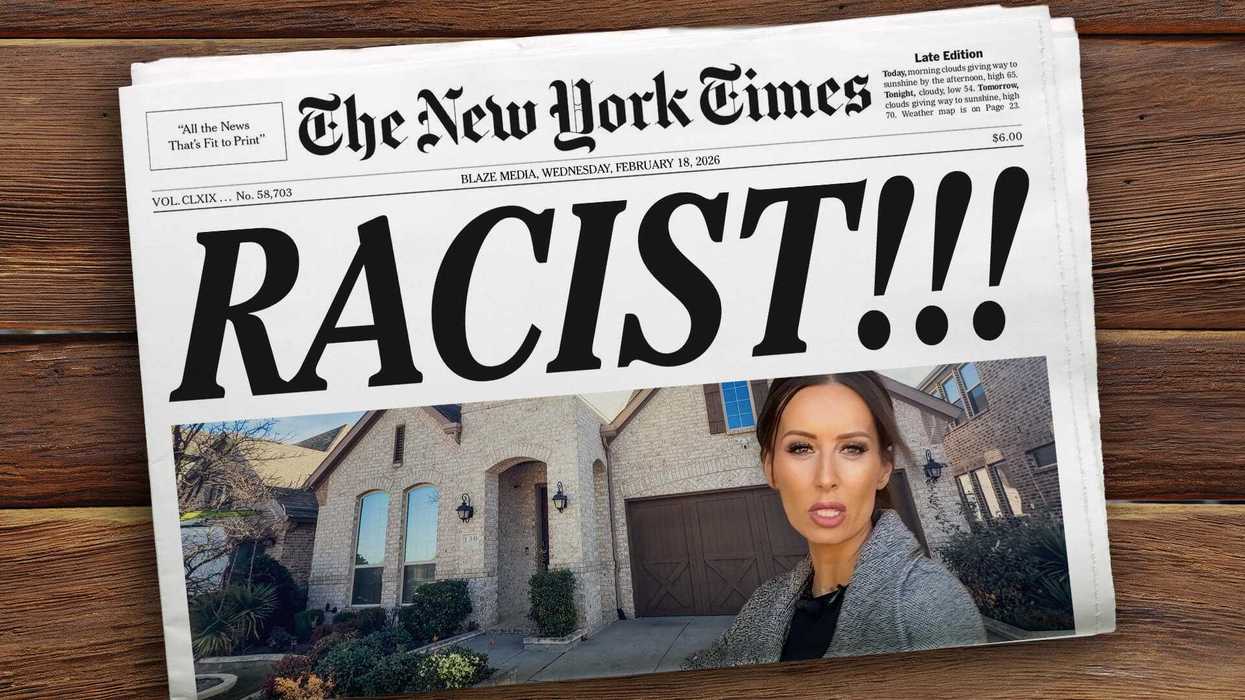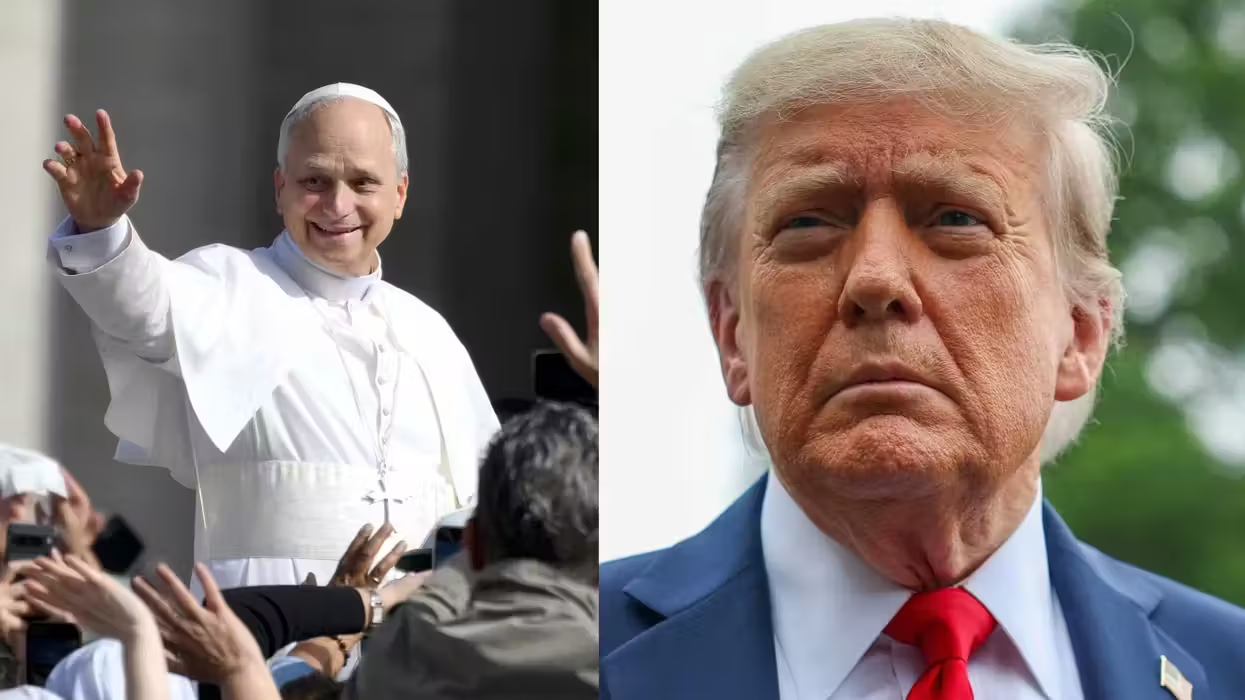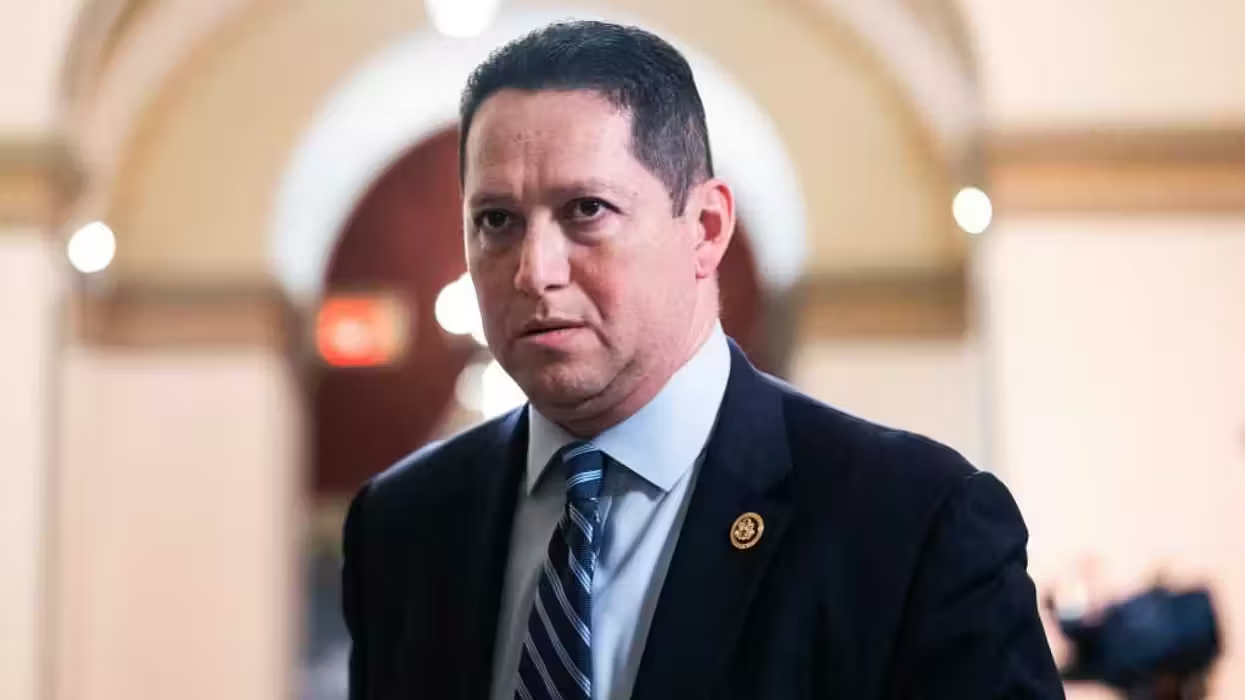© 2026 Blaze Media LLC. All rights reserved.
Pentagon Study: '08 Financial Crisis May Have Included Work of Finanical Terrorists
March 01, 2011
“Ignoring the likelihood of this very real threat ensures a catastrophic event.”
It seems those Pentagon economic "war games" we reported on in December may have been a very good idea.
That's because it was revealed yesterday that a Pentagon contractor report suggests the U.S. may have been, and may currently be, the victim of financial terrorism. As the Washington Times says, the 2008 economic crisis may have included "financial subversion carried out by unknown parties, such as terrorists or hostile nations ... covertly using vulnerabilities in the U.S. financial system."
The report was authored by financial analyst Kevin D. Freeman in 2009, and is called “Economic Warfare: Risks and Responses.”
From the Times:
“There is sufficient justification to question whether outside forces triggered, capitalized upon or magnified the economic difficulties of 2008,” the report says, explaining that those domestic economic factors would have caused a “normal downturn” but not the “near collapse” of the global economic system that took place.Suspects include financial enemies in Middle Eastern states, Islamic terrorists, hostile members of the Chinese military, or government and organized crime groups in Russia, Venezuela or Iran. Chinese military officials publicly have suggested using economic warfare against the U.S.
“The new battle space is the economy,” Freeman told the Times. “We spend hundreds of billions of dollars on weapons systems each year. But a relatively small amount of money focused against our financial markets through leveraged derivatives or cyber efforts can result in trillions of dollars in losses. And, the perpetrators can remain undiscovered.
“This is the equivalent of box cutters on an airplane.”
So who does Freeman think could be responsible? The answer may not surprise you: Islamic terrorists, Russia, and China.
That possibility seems to be supported by news reported late last year that the Pentagon has been "war gaming" for a financial attack since early 2009 -- and many of those scenarios have focused on China.
According to Freeman's new report, the attack has three stages, two of which may have already been implemented:
- The first phase was a speculative run-up in oil prices that generated as much as $2 trillion of excess wealth for oil-producing nations, filling the coffers of Sovereign Wealth Funds, especially those that follow Shariah Compliant Finance.
- The second phase appears to have begun in 2008 with a series of bear raids targeting U.S. financial services firms that appeared to be systemically significant [such as Bear Stearns and Lehman Brothers]. ... This created a system-wide crisis, caused the collapse of the credit markets, and nearly collapsed the global financial system.
- The risk of a Phase Three has quickly emerged, suggesting a potential direct economic attack on the U.S. Treasury and U.S. dollar. Such an event has already been discussed by finance ministers in major emerging market nations such as China and Russia as well as Iran and the Arab states. A focused effort to collapse the dollar by dumping Treasury bonds has grave implications including the possibility of a downgrading of U.S. debt forcing rapidly rising interest rates and a collapse of the American economy. In short, a bear raid against the U.S.financial system remains possible and may even be likely. [Emphasis added]
“We have taken on massive public debt as the government was the only party who could access capital markets in late 2008 and early 2009,” Freeman told the Times regarding phase three, which has put the U.S. dollar’s global reserve currency status at risk.
“This is the ‘end game’ if the goal is to destroy America,” he added, noting that in his view China’s military “has been advocating the potential for an economic attack on the U.S. for 12 years or longer as evidenced by the publication of the book Unrestricted Warfare in 1999.”
According to the Times, Freeman's suggestion has been largely ignored by the government, and there are many who don't agree with his scenario. But while Freeman says at this point he's only saying financial terrorism is a possible factor, ignoring that possibility is a mistake.
“The preponderance of evidence that cannot be easily dismissed demands a thorough and immediate study be commenced,” the report says. “Ignoring the likelihood of this very real threat ensures a catastrophic event.”
Pajamas Media has obtained a copy of the report and posted it online.
Read the entire report from the Washington Times.
Want to leave a tip?
We answer to you. Help keep our content free of advertisers and big tech censorship by leaving a tip today.
Want to join the conversation?
Already a subscriber?
Jonathon M. Seidl is a former managing editor of Blaze News and a best-selling author and speaker. His next book, “Confessions of a Christian Alcoholic,” will be released on October 7, 2025.
Jonathon M. Seidl
Jonathon M. Seidl is a former managing editor of Blaze News and a best-selling author and speaker. His next book, “Confessions of a Christian Alcoholic,” will be released on October 7, 2025.
more stories
Sign up for the Blaze newsletter
By signing up, you agree to our Privacy Policy and Terms of Use, and agree to receive content that may sometimes include advertisements. You may opt out at any time.
Related Content
© 2026 Blaze Media LLC. All rights reserved.
Get the stories that matter most delivered directly to your inbox.
By signing up, you agree to our Privacy Policy and Terms of Use, and agree to receive content that may sometimes include advertisements. You may opt out at any time.






